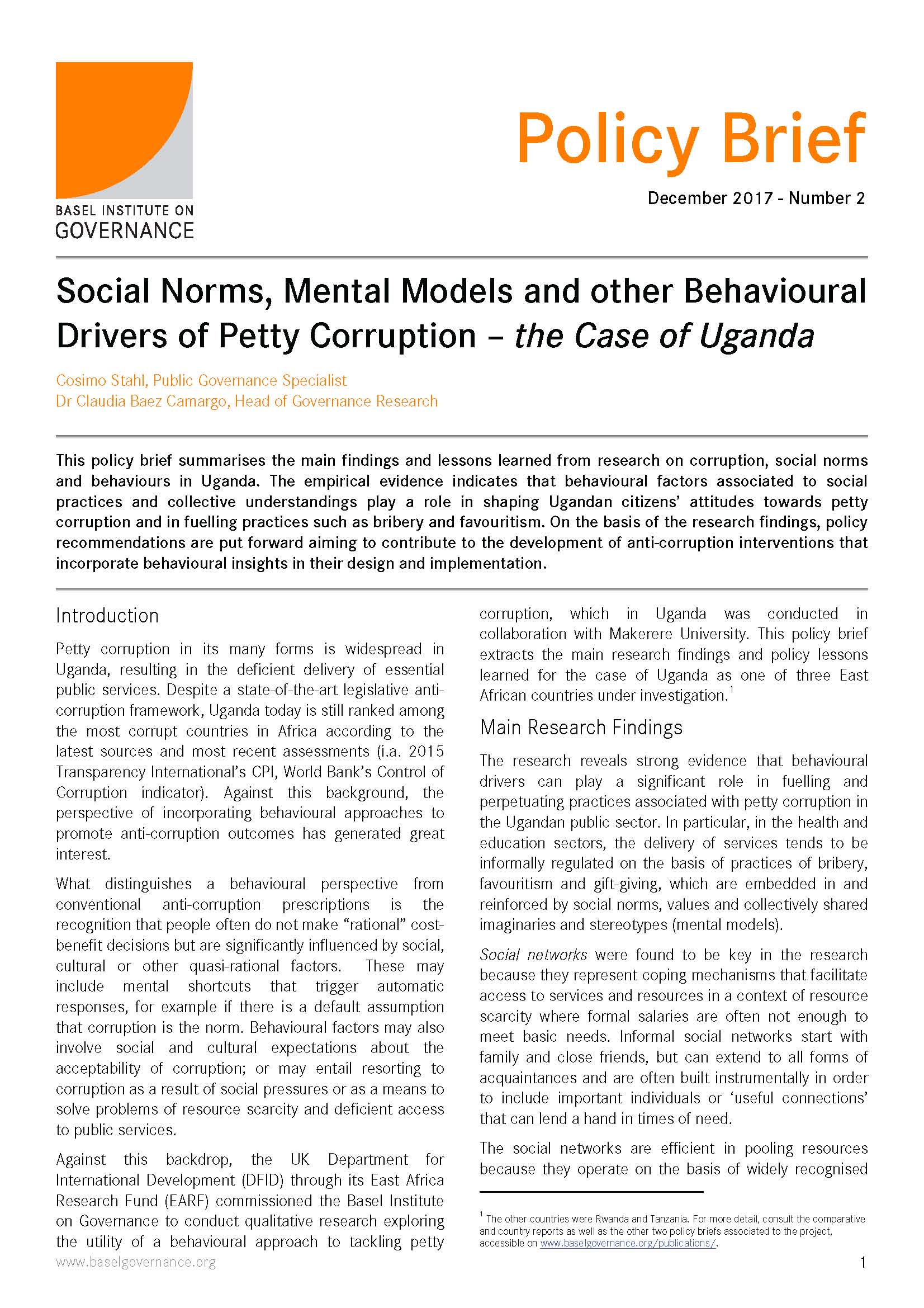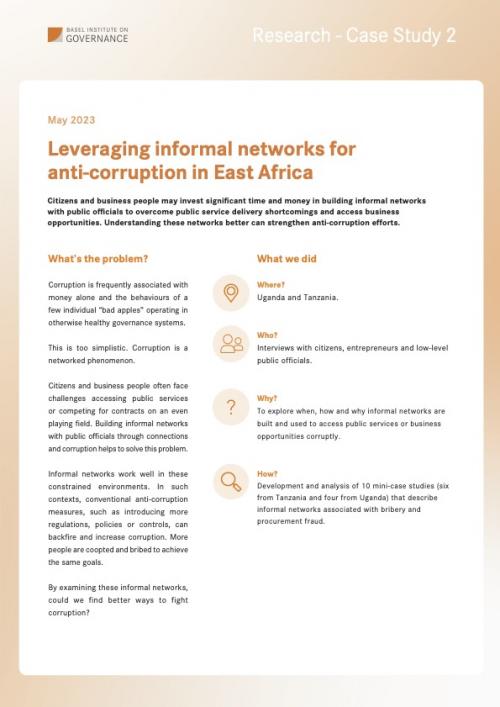Policy Brief 2: Social norms, mental models and other behavioural drivers of petty corruption – the case of Uganda
This policy brief summarises the main findings and lessons learned from research on corruption, social norms and behaviours in Uganda. The empirical evidence indicates that behavioural factors associated to social practices and collective understandings play a role in shaping Ugandan citizens’ attitudes towards petty corruption and in fuelling practices such as bribery and favouritism.
On the basis of the research findings, policy recommendations are put forward aiming to contribute to the development of anti-corruption interventions that incorporate behavioural insights in their design and implementation.
About this Policy Brief
This publication is part of the Basel Institute on Governance Policy Brief series, ISSN 2624-9669.
It is licensed under a Creative Commons Attribution-NonCommercial-NoDerivatives 4.0 International License (CC BY-NC-ND 4.0).
Suggested citation: Baez Camargo, Claudia, Cosimo Stahl, and Saba Kassa. 2017. "Social norms, mental models and other behavioural drivers of petty corruption – the case of Uganda." Policy Brief 2, Basel Institute on Governance.
Links and other languages



